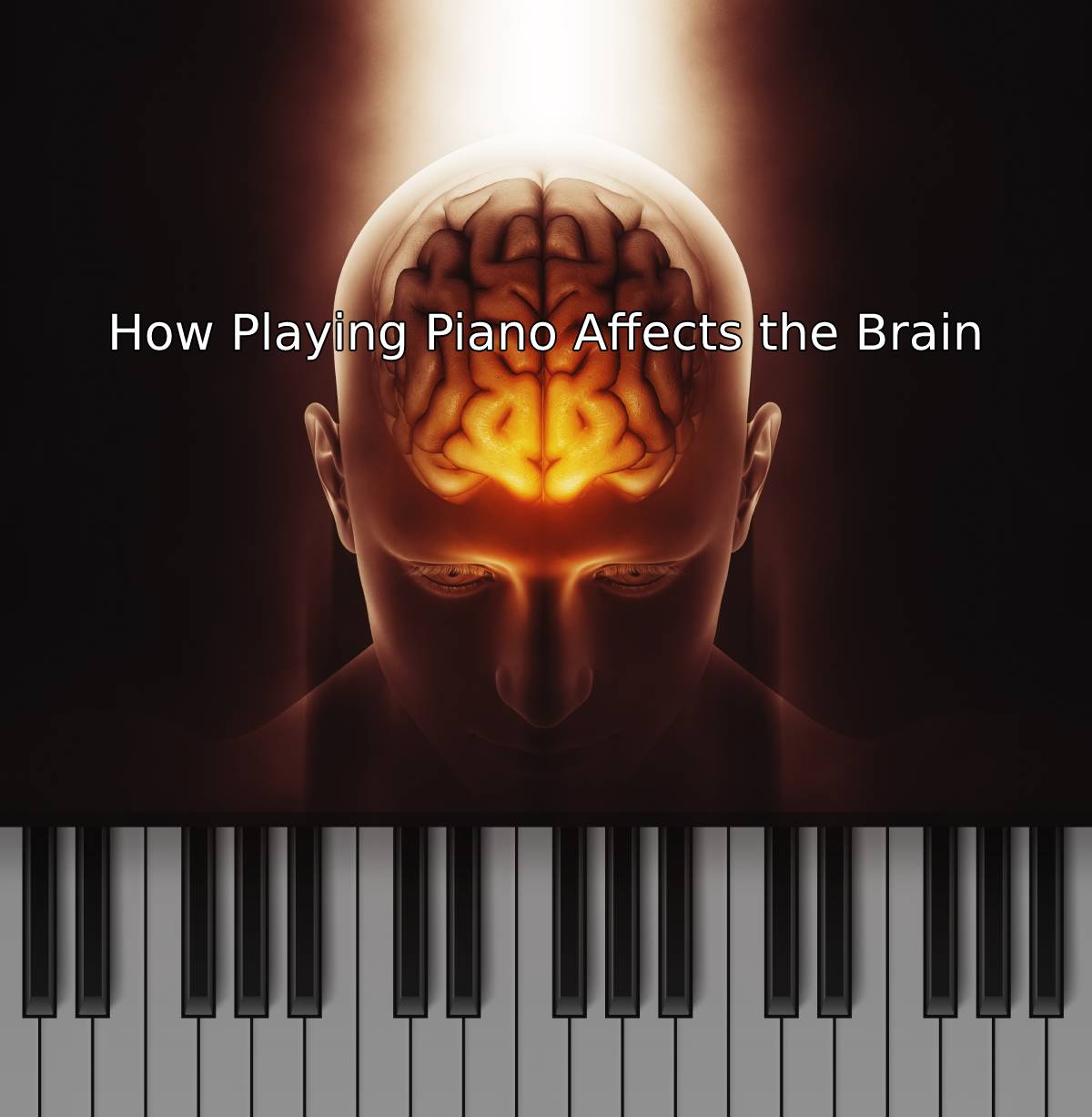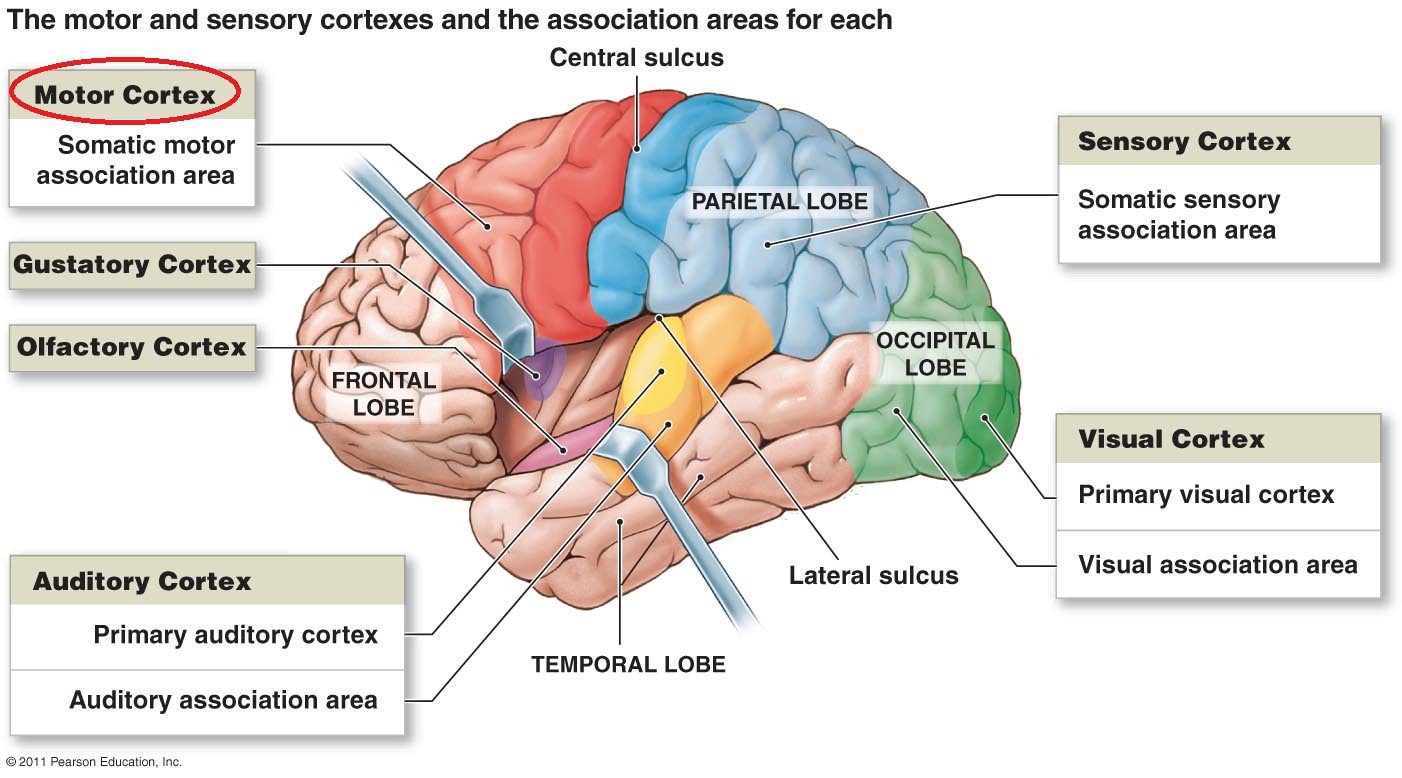This article will look at how playing piano affects the brain. The following questions will be answered. Is Piano Good for the Brain? Are pianists smart? Does piano improve memory? Does playing the piano increase IQ?

In the last few decades, neuroscientists have made enormous breakthroughs in understanding how our brains work. They’ve achieved this by monitoring people’s brains in real time using instruments FMRI (Functional Magnetic Resonance Imaging).
According to neuroscientists, playing music in the brain is the equivalent of a full-body workout. The many different parts of the brain work together to process and connect the different musical elements at a very high speed.
Is Piano Good for the Brain?
Playing piano is particularly beneficial in 3 areas of the brain: the motor, visual and auditory cortices. Just like a physical workout, disciplined and structured piano practice strengthens these areas, which allows pianists to better apply them to other activities.
Scientists have found that playing music creates strong brain activity in both hemispheres, which increases activity in the corpus callosum (the bridge between the left and right hemispheres).
This allows messages to cross both sides of the brain through faster and more diverse routes. It is thought that this may allow musicians to solve problems more effectively and creatively in both academic and social settings.
Recent research has found that anyone who starts to learn an instrument, even at an old age, shows some kind of increased brain function. It is also good prevention for old-age brain diseases such as dementia and Alzheimer’s.
Find a qualified piano teacher who can help you learn the piano with a disciplined approach.
Are pianists smart?
Because making music involves crafting and understanding a song’s emotional content and message, musicians often have higher levels of executive function—a category of interlinked tasks that includes planning, strategizing and attention to detail.
The brains of musicians are different from the brains of non-musicians. There are about 5 different areas where the brains of musicians are larger structurally. These include hearing and listening, motor actions to produce sounds, memory, emotion, attention, and learning.
Brain plasticity
Brain plasticity refers to the brain’s ability to rewire itself, and create new neural circuits. In the past, it was thought that only children could exhibit brain plasticity, however, scientists have proven that adults exhibit plasticity as well.
A famous study on juggling, published in Nature, showed that adults exhibited brain plasticity after learning to juggle. It is interesting to note that, the brain returned to normal after they stopped practising. This means that you need to continue to play the piano to benefit from the increased brain function.
Brain plasticity is how playing piano affects the brain.
Does piano improve memory?
Improved executive function also has an impact on how the brain’s memory systems work. Musicians exhibit enhanced memory function, which allows them to create, store and retrieve memories more quickly and efficiently. Studies have found that musicians appear to use their highly connected brains to give each memory multiple tags, such as a conceptual tag, an emotional tag, an audio tag and a contextual tag (Just like a good search engine).
According to a Canadian study, musically trained participants outperform their untrained counterparts on tests that require participants to remember prose.
Does playing the piano increase IQ?
A 9-month Canadian weekly piano and voice training study showed that young participants’ IQ rose by nearly 3 points compared to their peers. The study lends support to the idea that playing the piano exercises parts of the brain that are useful in mathematics, spatial intelligence and verbal areas. Glenn Schellenberg, of the University of Toronto, explained that the multifaceted learning experience of playing the piano, such as memorizing, expressing emotion, and understanding music theory, could be affecting IQ.
According to this study, taking music lessons is associated positively with performance on various listening tasks, musical or otherwise. These include:
– Enhanced reading ability.
– Vocabulary.
– Sequencing verbal information.
– Detecting pitch violations in spoken language.
– Decoding emotions conveyed by prosody in speech.
In Conclusion
In this article, we have shown how playing the piano affects the brain. Children can benefit from playing the piano through increased abilities in academic and social pursuits, and adults can give their brains a workout and prevent degenerative brain diseases. Playing music increases the brain’s ability to communicate between the right and left hemispheres. This means that piano players might be able to solve problems more effectively and creatively than non-piano players.
Musiprof provides high-quality piano lessons in Montreal, Toronto, and Vancouver. Our wide selection of teachers will allow you to find the teacher that will be right for you and help you play the piano with joy. Experience how playing the piano affects the Brain for yourself.



